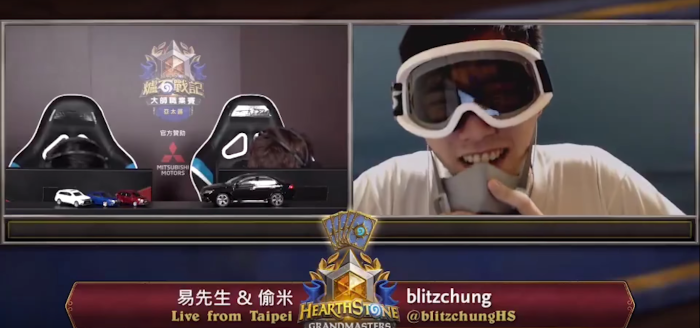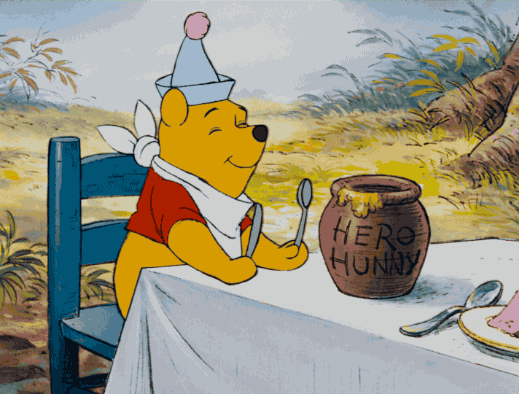

#BoycottBlizzard: How Giving Into China’s Government Censorship Made Cowards Out of Disney, Activision, and the NBA
By Kayleigh Donaldson | Politics | October 10, 2019 |
By Kayleigh Donaldson | Politics | October 10, 2019 |

Last week’s edition of South Park turned out to be more prescient than first predicted. Episode two of season 23, ‘Band in China’, saw Trey Parker and Matt Stone take on not only the Chinese Government and its harsh censorship laws but the mighty American corporations who bow to their demands in the name of profit, most notably The Walt Disney Company. South Park was quickly wiped off the face of the internet in China, deleted as if it never existed.
The same weekend the episode aired, Daryl Morey, the general manager of the NBA team the Houston Rockets, was forced to apologize for tweeting a message of solidarity to protestors in Hong Kong. Like South Park, Morey saw the fallout from his own words almost instantly, as Chinese state media entertainment conglomerate Tencent suspended the broadcast of preseason games in China.
Now, the controversy has hit the world of gaming. Activision Blizzard, the company behind the mighty MMO World of Warcraft, suspended a professional Hearthstone player after he publicly declared his support for Hong Kong’s protesters. Chung Ng Wai, who plays under the name ‘Blitzchung’, spoke in support of the movement during a post-match interview at the Asia-Pacific Grandmaster tournament last week. That moment led Activision Blizzard to not only suspend him from competing in Hearthstone tournaments for a whole year, but they also rescinded his winnings from that tournament — $3000 — and fired the two people who interviewed him and tried to duck out of frame as he talked. They claimed this was a suspension of official competition rules. It’s worth noting that Tencent, the company that have exclusive streaming rights for NBA games in China, also has a 4.9% stake in Activision Blizzard.
It didn’t take long for the rest of the gaming world to take notice of Blizzard’s decision and stand up against it. #BoycottBlizzard trended worldwide on Twitter, with many major names in the industry speaking out. The Reddit thread dedicated to Blizzard was briefly shut down by a rogue mod in protest. The r/Activision page is currently post after post of anger directed at the company for its cowardice. Shortly afterward, the American University Hearthstone team held up a sign showing their support for Chung and Hong Kong during a broadcast of the American Collegiate Hearthstone Championship. A few seconds after their ‘Free Hong Kong, Boycott Blizz’ sign went up, the broadcast cut away from them. One of the game’s most popular casters, Brian Kibler, then announced that he was stepping down from casting the Grandmasters finals at BlizzCon, although he did note that he thought Blizzard was ‘correct in issuing’ the penalty to Chung but that it was still too harsh a punishment.
According to The Daily Beast, a number of Blizzard employees walked out in protest. One employee told the site, ‘Doing business in China, it’s been easier to ignore the authoritarianism of the government because they were asking us to do things like remove a skeleton [from a game]. The stakes are so much higher now. What was previously an obvious decision is much less obvious now.’
Not everyone at Blizzard agrees with what happened.
— Kevin Hovdestad (@lackofrealism) October 8, 2019
Both the "Think Globally" and "Every Voice Matters" values have been covered up by incensed employees this morning. pic.twitter.com/I7nAYUes6Q
Things have gotten so bad for Blizzard that they’ve caused a moment of cross-party unity in the Senate, with both Ron Wyden and Marco Rubio (!) condemning them for acquiescing to Chinese censorship.
Blizzard shows it is willing to humiliate itself to please the Chinese Communist Party. No American company should censor calls for freedom to make a quick buck. https://t.co/rJBeXUiwYS
— Ron Wyden (@RonWyden) October 8, 2019
Recognize what’s happening here. People who don’t live in #China must either self censor or face dismissal & suspensions. China using access to market as leverage to crush free speech globally. Implications of this will be felt long after everyone in U.S. politics today is gone. https://t.co/Cx3tkWc7r6
— Marco Rubio (@marcorubio) October 8, 2019
Blizzard, like many major entertainment conglomerates, makes a lot of money in China. According to Activision-Blizzard’s Q2 2019 financial results (via The New York Times), the Asia Pacific market makes up about 12% of their quarterly revenues. That may not seem like much but, like Disney and the NBA, it’s all about the potential for exponential growth. The box office power of China has become so vast and so coveted by Hollywood that the lion’s share of major blockbusters are now made either with the country in mind or with a sizeable focus on how to appeal to those audiences. Sometimes, that’s with strange China-specific product placement, and other times it’s by positioning the country’s government as the hero of the tale (hello, Transformers franchise.)
Disney has previously faced the wrath of the Chinese government. In 1997, Disney produced and distributed the Martin Scorsese film Kundun, a drama based on the life of the Dalai Lama. China banned the movie for its negative depiction of the country in relation to Tibet, and they subsequently banned all Disney films for a while. That ban was lifted in 1999 when Disney issued an apology to the country just in time for a movie called Mulan to get a major release in China. The company was also negotiating the rights to build a Disney resort in Shanghai. That was before China became the almighty box office power it is now, one that brands like Marvel have become heavily dependent on.
As Joshua Rivera Kotaku noted in their piece on Blizzard’s actions, ‘The video game industry benefits from upholding the illusion that video games are an island of neutrality, a place where money can be apolitically spent’ but that’s never been true in this business. Just look at GamerGate for the most chilling example of cowardly inaction masquerading as a refusal to ‘take sides’. The multi-billion dollar industry of video games cannot continue to cling to the illusion of neutrality, be it thanks to the mounting allegations of workplace harassment and labor law violations, the way marginalized individuals are consistently shut out of the business, or bending over backward to appease an authoritarian government’s demands.
There is something especially insidious about how such companies, ones with market values in the billions of dollars range, don’t even think twice about the message this sends because profit comes before people. Granted, that is the cold hard rule of capitalism the world over, but it’s especially callous coming from businesses who espouse free speech simultaneously as they adhere to censorship. Disney continues to welcome in the congratulations from their promise to finally include an openly gay character in an upcoming Marvel title, but they do so with the knowledge that we’re all painfully aware those scenes will be brief, have no impact on the plot, and be easily removed for the China cut because that market matters more than even their most pathetic pleas of progressivism. These attempts at neutrality only exacerbate the obvious sides companies like Disney, the NBA, and Blizzard have taken, and they most certainly have taken sides here: That of the Chinese government.
It’s foolish to expect corporations to care about people more than money, but the ultimate cost of giving into an authoritarian government’s demands because you may make an extra billion dollars is one that will leave an irremovable stain on these respective industries for many years to come.
Isn’t that right, Pooh bear?

(Image via Giphy)
← Listen: Metallica's 'For Whom the Bell Tolls' Combined With Kanye West's 'Black Skinhead' | 'AHS 1984' Recap: How Many Episodes Are Left? →
More Like This
Joe Biden Says Taylor Swift's Potential Endorsement Is Classified
Larsa Pippen Regrets How She Handled Breakup with Marcus Jordan Now That They've Reconciled
A Fiery Jon Stewart Returns to Unload on Joe Biden
British Politicians Treat Brianna Ghey's Murder as a Joke
Elizabeth Warren Says 'It Shouldn't Be That Hard' To Legalize Marijuana

What’s Old Is New Again: Old Hollywood Glamour Glitters at the 2024 Oscars
Al Pacino Presents Best Picture Oscar, Confuses Everyone
The Dangerous Lie Of 'TradWives'
A Legendary Horror Franchise Is Headed To Television
'The Mandalorian' Season 4 Is Probably Not Happening
Halle Bailey On Why She Chose To Keep Her Pregnancy Private
More Like This
Joe Biden Says Taylor Swift's Potential Endorsement Is Classified
Larsa Pippen Regrets How She Handled Breakup with Marcus Jordan Now That They've Reconciled
A Fiery Jon Stewart Returns to Unload on Joe Biden
British Politicians Treat Brianna Ghey's Murder as a Joke
Elizabeth Warren Says 'It Shouldn't Be That Hard' To Legalize Marijuana
Reviews